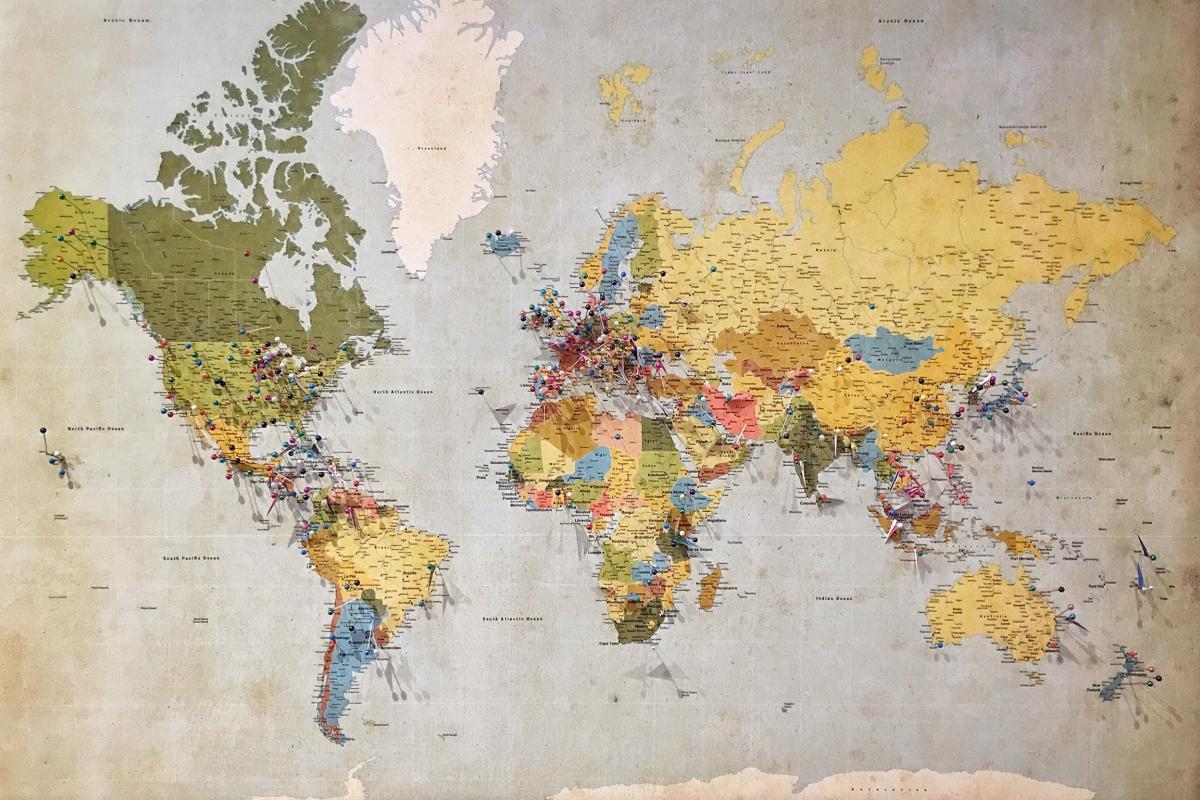New services are trying to reconcile consumers’ urge to avoid risk with their longing for adventure. Melanie Howard explains the world of the curated experience.
Flying off the shelves of our trends nursery nVitro is a new narrative we call The End of Adventure. It has applications for most sectors, articulating one of the paradoxes created by a world of ubiquitous digital access. It describes how we are now anticipating a future of managed discovery and curated novelty. Adventure, as we have known it, is dead, yet the desire for unmediated excitement remains strong. How can the modern brand reconcile these competing pressures?
In a market brimming with reviews, ratings and recommendations, one might think only the most intrepid consumer would dare to shop blind, without the aid of the choice-maximising tools. However, our contention is that a wired world that supports so much vicarious living – in which so many offers can be voyeuristically pre-viewed, Binged or Google-Mapped – is anathema to adventure. We are facing a future in which discovery is managed, experiences vetted and true adventure marginalised, as this quote from our global network of trendspotters illustrates: “I prefer to know that I’m going to a good restaurant, good hotel, beautiful part of a city… [People here] actively enjoy the research aspect of planning a trip, they like to know that their hard-earned money will be well-spent.” (Ireland, female, 36.)
Smart destinations are capitalising on this reality. Visit Sweden launched a campaign to give prospective travellers an insight into the best hidden (but perhaps not for long) places to visit in Stockholm, Gothenburg and Skåne. A ‘local insider’ took over Visit Sweden’s Instagram, Facebook and Twitter feeds to showcase everyday life and share their favourite local places.
But as we acknowledge this growing ability to survey the marketplace, we must not underestimate the thrill that only accidental, authentic and surprising discovery can deliver. Uncovering new experiences and acquiring knowledge is a means of impressing others and gaining social capital. Research show that most in many countries agree they feel a need for ‘more excitement’ in their everyday lives – as the following quote illustrates: “I just realised how safely I’ve tried to live and how dependent I was on information. I miss being as brave and adventurous as I was in my early 20s. I am planning for a trip to south-east Asia without any information. I think it will bring my life fresh meaning.” (South Korea, Female, 30.)
The question we have to address is how can consumers’ parallel interests in both meticulous, pre-planned consumption and novel, authentic experiences be reconciled?
Enter the concept of managed discovery. This is where consumers place a premium on moments of surprising and fresh experience that are outsourced to third-party (but trusted) partners with explicit authorisation to surprise and enlighten customers with unresearched and untested offers. Our database of the latest global manifestations provides many examples of pioneers in this area:
Launched in 2011, Nextpedition by American Express lets consumers loosely create their own mystery trip by taking an online quiz. Travellers receive a smartphone before the trip that reveals the itinerary day by day. WeeklyIndie.com sends subscribers 10 new songs a week from a wide range of genres and artists. The site scours thousands of songs to “bring you the very best… instead of just giving you a catalogue of 10 million songs to choose from”. In China, Ctrip offers a ‘fuzzy booking’ mystery hotel service that dares customers to book without precise knowledge of the hotel’s location. In return they are awarded a significant discount.
Stack positions itself as a “unique service that brings together the best independent English language magazines from around the world and delivers them direct to your home”. The company says each delivery is a ‘surprise’ but guarantees an “excellent independent magazine that you probably wouldn’t otherwise have found”.
Larder Box operates a monthly subscription service to “discover new tastes, new recipes and support small businesses”. The May 2012 box included a “Goan curry kit from Hare’s Moor… lightly smoked coarse sea salt from The Vale Smokery… spicy banana ketchup from The Smokey Joe Sauce Company… and passionfruit marshmallows from Zurk Boutique”.
These examples confirm our hypothesis that the process of exploration itself, on- and offline, will become increasingly managed and consciously contrived. Thus brands can develop a role as novelty curators, entrusted with augmenting the everyday with new sights and experiences.
The role of the reliable curator will become increasingly important, with significant competitive advantage to be found, we suggest, in pleasantly jolting consumers off the beaten track and providing access to out-of-the-bubble and status-enhancing stories, genres, sites, destinations, tastes, authors… to enjoy and, crucially, pass on to others.
